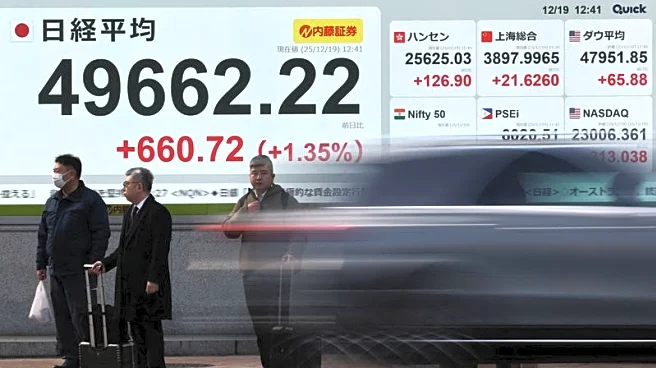What's Happening?
President Trump's tariffs on imports have led to significant disruptions in the U.S. soybean market. In retaliation to these tariffs, China has ceased purchasing U.S. soybeans, which has left American farmers without a major buyer for their crops. In response,
President Trump plans to use tariff revenue to provide financial aid to affected U.S. soybean farmers. Meanwhile, Argentina has capitalized on the situation by increasing its soybean exports to China. Despite this, President Trump is also considering financial support for Argentina, highlighting the complex dynamics of international trade and agriculture.
Why It's Important?
The tariffs and subsequent trade tensions have significant implications for the U.S. agricultural sector, particularly soybean farmers who are losing a critical export market. The financial aid from tariff revenue may provide temporary relief, but it does not address the long-term challenges posed by the loss of the Chinese market. The situation underscores the broader economic impact of trade policies and the interconnectedness of global markets. The reliance on government bailouts raises questions about the sustainability of such measures and the potential burden on taxpayers.
Beyond the Headlines
The situation reflects President Trump's zero-sum approach to trade, where he views transactions as having clear winners and losers. This philosophy, combined with the political influence of the agricultural sector, has led to policies that prioritize short-term gains over long-term stability. The reliance on bailouts may set a precedent for future trade disputes, potentially encouraging other countries to leverage similar tactics. The broader implications for U.S. trade policy and international relations remain to be seen.















